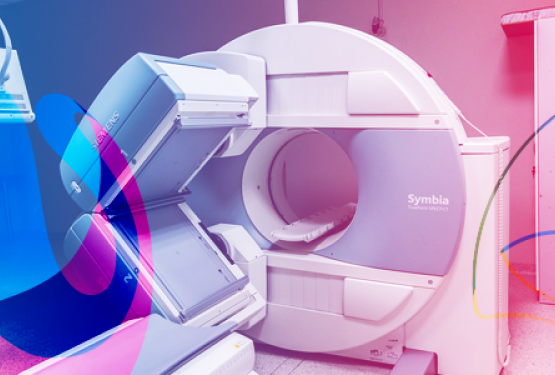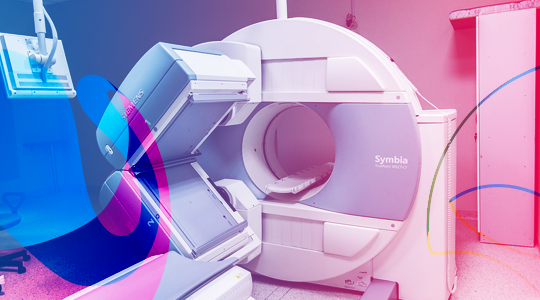Location of the University Clinical Center - Hotel Dieu
Located in the center of Nantes, the Hotel-Dieu has 827 beds for short stays for medical and surgical purposes.
The Hotel-Dieu interacts with three medical faculties. There is a pharmacy and odontology department; that is why it is classified as a hospital and university complex. It began its operation in 1967. Its area is 122,000 m2.
Taking into account the age of the buildings and in order to improve the comfortable conditions for the stay of patients, large-scale renovations have been carried out in the complex in recent years.
Clinical Departments of the Hotel-Dieu
The main building (Alexis Ricordo dance, 1)
Anesthesiology and surgical resuscitation
Burned injuries department and plastic surgery department
Oncology and dermatology department
Hemodialysis center
Department of Surgery of the Digestive System and Endocrine System
Department of Oral and Maxillofacial Surgery and Dental Department
Department of Orthopedic and Trauma Surgery
Dermatological department
Functional research department
Department of Hematology - day hospital for monitoring patients after transplant surgery
Department of Clinical Hematology
Hepatogastroenterology, Department of Oncology of the Digestive System and Enteral Nutrition
Institute of Diseases of the Digestive System
Therapeutic department
Department of Medical Radiology
Department of Nephrology and Clinical Immunology
Ophthalmology department
Department of Otorhinolaryngology and Maxillofacial Surgery
Hotel-Dieu pharmacy and pharmacological department of clinical oncology
Transversal allergy department
Medical resuscitation department
Outpatient surgery department
Urology department
Jean-Monnet Wing (30 Jean Monnet Boulevard)
Department of Nephrology and Clinical Immunology
Medical resuscitation department
Medical and Surgical Technical Building (Boulevard Jean Monnet, 32)
Anesthesiology and surgical resuscitation
Outpatient surgery department
Department of Hematology - Day hospital for patients before and after transplant surgery
The day hospital is located on the 8th floor of the North Wing.
Opening hours: from 8:00 to 19:30 from Monday to Friday (the branch is closed on weekends and holidays).
This department provides the possibility of hospitalization for one day for all patients before and after the transplant operation for the purpose of medical supervision and the necessary therapy.
Being in a day hospital also allows you to carry out various types of examinations before and after the transplant operation:
Еxamination before collection of peripheral stem cells. Blood sampling is carried out here, and nurses from the French Institute of Blood confirm that the patient has no contraindications for the collection of peripheral stem cells;
examination before the transplant operation. This type of examination allows you to obtain information of a medical and general nature about the upcoming hospitalization, to conduct additional studies and blood sampling.
follow-up after transplant surgery. This implies medical follow-up after transplantation, including blood sampling, medical examination, and possible blood transfusions.
Examination in D100. This is a more specific examination carried out three months after the transplant operation.
annual survey. Held annually after the transplant operation. A month later, according to the results of the examination, a medical consultation is prescribed.
Features of reception
During their first visit to the day hospital, the patient needs to go to the admission department in order to get a medical record. Stickers are issued here, which the patient must give to the team of the medical staff of the hematology department. During subsequent visits to the day hospital, this formality is not fulfilled.
Stay in the department
Upon arrival at the department, the patient must state the purpose of his visit. Then he is taken to the emergency room or directly to the ward.
During the visit, there may be a need for waiting due to emergencies or staff workload.
Department of Nephrology and Clinical Immunology
The Department of Nephrology and Clinical Immunology is a subdivision of the Institute of Urological and Nephrological Transplantology. It carries out the reception and treatment of patients with kidney diseases. In the course of their development, some of these diseases pass into the stage of chronic renal failure, which, at its final stage, requires dialysis or transplantation surgery. The Nantes Transplant Center, in particular its Department of Nephrology and Clinical Immunology and its Urology Department, is one of the largest centers in France for kidney and pancreas transplantation.
The Department of Nephrology and Clinical Immunology includes numerous divisions that carry out various activities.
In the department for hospitalization of patients with diseases of a general nephrological profile, the diagnosis of kidney disease and the stage of renal failure, treatment of such diseases and their complications is carried out. All patients who need hospitalization of a nephrological profile are admitted here, including patients who have undergone transplantation in the postoperative period, as well as patients undergoing dialysis.
The Kidney Transplant Unit is a restricted-access intensive care unit. Here, patients are admitted to the hospital awaiting or after a kidney or pancreas transplant.
The Department of Hemodialysis for Acute Renal Failure receives patients who are undergoing the first - urgent or planned - hemodialysis sessions, as well as patients who are already on dialysis or hospitalized at the University Clinical Center in the Department of Nephrology and in other departments.
The Chronic Renal Failure Hemodialysis Unit monitors patients for whom three dialysis sessions per week are permanently assigned to the University Clinical Center.
Consulting unit for nephrology and transplantation (enrollment in the waiting list, observation in the postoperative period). Consultations are held daily. Possibility of an emergency consultation when contacting the attending physician.
Help desk
The provision of information is carried out by nurses. Nature of information:
renal failure and its treatment. This information is provided through meetings held twice a year. It can be general information, can be presented in the form of consultations conducted by nurses, and also - be personal and consider the problems of each patient;
Diet for renal failure. If necessary, a consultation with a dietitian may be scheduled;
Kidney or pancreas transplant:
Preparation for surgery,
Living donor transplant,
Observation after surgery.
Remote observation
Since 2012, some patients can be monitored remotely in the postoperative period thanks to innovative telemedicine technologies.





